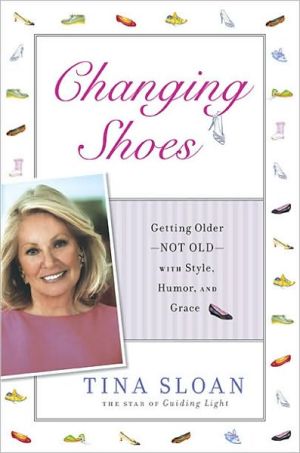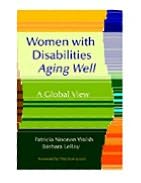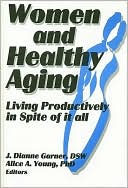Changing Shoes: Getting Older--Not Old--With Style, Humor, and Grace
After twenty-six years starring as nurse Lillian Raines on the hit soap opera Guiding Light, Tina Sloan knows a thing or two about surviving the pitfalls of growing older in front of the world. From depleted storylines, to transitioning from sizzling screen diva to a mature grandmother Changing Shoes shows that even TV grandmothers can have style and flair. Drawing from the lessons she has learned in her own life, Tina candidly shares her endearing, sensitive, and often funny, story of...
Search in google:
After twenty-six years starring as nurse Lillian Raines on the hit soap opera Guiding Light, Tina Sloan knows a thing or two about surviving the pitfalls of growing older in front of the world. From depleted storylines, to transitioning from sizzling screen diva to a mature grandmother Changing Shoes shows that even TV grandmothers can have style and flair. Drawing from the lessons she has learned in her own life, Tina candidly shares her endearing, sensitive, and often funny, story of crossing into her next phase of her life. And, in doing so, she offers important tips on how to embrace womanhood with ease.
chapter one Staying in the Game\ It was at age forty-eight that I was struck by the proverbial clap of thunder, the kind that forces you to do a bald-faced reevaluation of your life. It was ten in the morning and I was walking down Forty-fourth Street in Manhattan with my soap opera daughter, Beth Chamberlin, to get a cup of coffee. We were in evening gowns because our last scene had been a gala party where we were murdering someone. (Most likely the someone we were murdering was asking for too much money in his contract.) "Oh, Beth, you were so great in that scene! The way you stabbed him thirty-two times, I loved it. Thank heavens you didn't get any blood on my gown!" I said, laughing. I was feeling fabulous and beautiful, wearing dripping diamond earrings, Christian Louboutin heels, and an Oscar de la Renta canary yellow gown.\ I loved to be spotted outside in my costume, as though my character had suddenly broken through the fourth wall and come to life. Beth and I would waltz outside after our scenes in whatever garb we were wearing, be it bloody medical scrubs, pajamas, or elegant designer gowns, and run and get some fresh air. Even in a city like New York, where people have seen it all, our appearance on the street always elicited a lot of attention.\ As a woman and an actress no less, I know when I'm being watched. I would feel the covert glances of strangers assessing me, and let's admit it, for any woman, this can be a thrill. But this time, standing there in the coffee shop waiting for my double tall mochaccino to be delivered, I could sense that something was wrong. Looking around the coffee shop, nothing seemed to be out of place… sugars, creamers, straws, napkins—everything was where it was supposed to be… what could be wrong?\ Then I saw him. The man with the salt-and-pepper hair in the corner of the coffee shop, perfectly dressed in an Armani blue blazer, yellow Hermès tie, and gold cuff links, staring fixedly at Beth. I followed the trajectory of his eyes and there could be no doubt, he was staring at her, the way men used to stare at me. If he had been pointing a pistol at me it would not have been as terrifying. Glancing around, I understood what was making me feel uneasy. NO ONE was looking at me. NO ONE. They were ALL looking at Beth. The handsome man in the corner, the man making our coffee, who was so transfixed he scalded himself with the hot milk, the three girls in line behind us with their yoga mats, even the little red-haired boy and his two friends—obviously playing hooky—were watching her. The whole coffee shop was enthralled with Beth. Nobody even glanced at me.\ I hated her.\ After getting back to my dressing room, I looked in the mirror and was astounded. How—in one day—had I gotten old? And more important, how had I not noticed the wrinkles and soft arms? I was close to fifty, and yes, I had been coloring my hair for years, but somehow, I'd always thought that other than that, I was just fine.\ For the first time in years, sitting there in front of my dressing room mirror, I thought about Aga Church.\ Aga Church had been my muse many years ago. She was a Parisian friend of my parents, with whom I had spent a summer when I was in my twenties. At the time, my mother and I were locked in an epic battle over my future: I wanted to become an actress; she wanted me to find a husband, buy a house, get a golden retriever, and start bringing up children. Like so many well-bred women of her generation, my mother had put her own interests on hold when she married my father, and she was adamant that I forget this "silly nonsense" about acting and choose a more dignified path. "Darling, why would you ever want to be an actress?" she asked. "Acting is so… déclassé. There are practical considerations that a girl your age has to think about. It's time for you to grow up, my dear." In order to escape my mother's clucks of disapproval and constant monitoring eye, I jumped at the chance to travel to Paris.\ I think my parents had hoped that Aga would talk some sense into me. They couldn't have been more mistaken. To me Aga was the epitome of female independence. She looked like she had stepped out of a fashion magazine. Her hair was always perfectly coiffed, her clothes were impeccable, and she was so self-assured, so confident, so alive. For Aga, even spreading jam on a croissant was an act filled with style and flair. She opened my eyes to a world so different from that of my sheltered, suburban upbringing. It was the 1960s and she had invested in a fabulous Parisian nightclub called The Crazy Horse where the most beautiful women I had ever seen danced—and took off their clothes! We were there every night and we were treated like royalty; Aga moved among the crowd as if she was Marie Antoinette herself. She seemed to float through the room, between acts, smoking her ubiquitous French cigarettes, sipping her Dom Perignon, and chatting with her friends. I watched her and studied her every move.\ Since we never got up before one o'clock, it was late afternoon the day Aga took me to Chanel. She wanted to buy me some new shoes. I will never forget watching her walking through the store, pointing to different pairs of shoes, each lovelier than the last, and saying: "These shoes are for simply having fun—nothing serious, a brief rendezvous. And these are for when you want a man to notice you, but not fall in love with you. And these shoes, Tina, these shoes are for seduction!" Aga's relationship to shoes was a revelation. In her mind, each experience in a woman's life corresponded with a different pair of shoes, and she had seemingly walked in them all.\ After a moment Aga turned to me, motioned to the wall of shoes before us, and in her thick French accent said, "Now, Tina, you choose." I didn't know what to do. There were so many choices. I walked along the wall taking one shoe and then another in my hand. They were so beautiful and the heels were so high, the soles were smooth and they were so light. I had always wanted to own a pair of expensive high heels. I had sneaked out of the house a few times in a pair of my mother's old spectators that never really fit me. But here was Aga, offering me, for the very first time in my life, my own pair of designer high heels. It didn't take long for me to spot the ones I wanted. The moment I saw them I knew they were The Ones. They were classic and black and they seemed to me like a work of art.\ When I first kicked off my college-girl Capezios and slipped on those black Chanel heels, I felt as if the world around me was transformed and everything suddenly became more exciting. I wore those shoes as I walked the streets of the Sixteenth Arrondissement, where Aga lived, from Rue Saint-Honoré to the Left Bank, learning about art and architecture and French culture and, of course, under Aga's tutelage, men. I felt free and giddy with possibility, certain that those shoes would take me somewhere fabulous. They were my magic shoes. Over the course of that summer, Aga taught me about life and how to really live. And she ultimately gave me the courage to go against my mother's wishes and to become an actress. At a time when I wasn't sure if I had choices, Aga taught me that a woman must always have the choice when it comes to her shoes. She would say, "Tina, the hardest part is knowing which shoes to wear—once you know that, all the rest is just marché. But always make sure that the shoes you wear are your own. That way your feet will know where to take you." She showed me that the world was my oyster—accompanied by Champagne, naturally.\ When I returned to New York, my feet knew where to take me. Every time I put on those Chanel heels, I felt that same sense of glamour and confidence I'd felt in Paris. I was wearing them the day I got my first role in a television commercial and the day I got my first part in a soap opera. And when they wore out I had others like them, glorious heels, thin ones in dark colors for everyday, and gold and silver ones for parties. I even wore stylish Chanel white heels with my nurse's uniform during my early days on Guiding Light. I remembered the words that Aga told me, and I chose shoes that took me to all sorts of fascinating places and introduced me to all sorts of wonderful people.\ There's an expression in French called the coup de vieux, the "blow of age," when one suddenly looks old. Many years later when I returned to Paris to visit this stylish and gorgeous woman, she had disappeared. Aga came into the bar where my husband and I sat. In she walked, this tiny, frail woman. Gone were the stunning clothes and shoes; no one said hello to her or recognized her or fussed over the way they always had when I'd been with her years ago. Aga had aged, but even worse, she seemed to have given up. It devastated me. I felt angry at her. I felt betrayed. I couldn't understand it, of course. Later I would learn more about what Aga was going through and have more sympathy. But at that time I just couldn't grasp what had happened.\ I was young then. Now on this day in the coffee shop with Beth, nearing fifty, I realized that I had become that woman—the one who's invisible, even in the to-die-for evening gown.\ Around this time I also began dealing with other things that were making me feel my true age. Everywhere I turned, there seemed to be signs that my life was changing, and not for the better. My parents' health was in decline. My son had recently joined the Marines and would be going to Iraq. My skin was duller. My body was softer. My role on Guiding Light had been fading away right under my nose. Gone were the skimpy dresses and love interests—it was the plots that were skimpy now. All my lines were about other characters, not me. And my shoes, which now that I looked more closely, were usually the same pair of scuffed and broken-in black flats, complete with cushions from Dr. Scholl's. I no longer cared which shoes I wore—forget glamour and confidence—I just wanted to be comfortable. Wearing heels had begun to make my feet hurt… then my legs… then my back. I'd even started wearing sneakers on Guiding Light because they were much more comfy and went with the scrubs that nurses were beginning to wear. They were practical shoes, and I'd succumbed to practicality.\ For a while I felt paralyzed, overwhelmed by the new reality that was rapidly unfolding before my eyes. I felt as if I were facing a huge desert of quicksand, and I needed to learn how to navigate it, or jump on a camel and cross it, but I didn't know where to find a map or a camel—even in New York City where we have everything. This sense of paralysis lasted for almost a year, but I was at a turning point in my life and I couldn't just keep denying it. The landscape around me was changing, and I had to move forward—but how?\ I looked around for role models who could offer me guidance for this next phase and was largely dismayed by what I saw. In most parts of our society, the idea of "aging gracefully" seemed to be equated with "gracefully" heading out to pasture. I began to notice how older people were usually overlooked, even at their own parties, be it a wedding anniversary or birthday. My own mother had gone on living a quiet life in the suburbs, watching her friends drift away and leaving most of the daily decisions and details to my father while her health and mind deteriorated. On the flip side, I noticed the women walking around my neighborhood who had been Botoxed and nip-tucked to within an inch of their life, desperately fighting a war they couldn't win. Neither of these roads appealed to me. I wanted to stay in the game and continue to feel productive and vital and beautiful.\ Even my friends seemed conflicted about how to approach aging. My friend Jean called me up one day, having just taken her life's collection of Guccis and Manolo Blahniks and donated them to the local thrift store. "I'm down to my lowest kitten heel," she informed me. It was a practical decision, fueled by aching feet and the fact that closet space in New York City is highly prized. But my other friend Anne, who is in her sixties, always, always, always wears high heels. She can't help herself. And if you ask her why, she'll say, "I just feel good in them." One woman's common-sense adjustment is another woman's unthinkable sacrifice. Do we accept our age because in not doing so we deny a very real part of ourselves? Or do we fight with everything we have to hang on to the same life we've always known?\ Fortunately, I'd had a great-aunt who had been a very famous decorator in her time—she had done the sets for the Folies Bergère—and had lived a rich and wonderful life well into her eighties. As a child, I would go to dinner at her house once a week and watched her hold court among her successful, elegant friends, who included Elizabeth Arden and Rose Cumming, one of the founding doyennes of modern interior design. And even after my aunt had stopped working, her home retained an air of energy and vibrancy. She entertained constantly, was always up on current events and front and center in any intellectual discussion, and above all, she was always beautifully dressed. She had one exquisite outfit that suited her perfectly and that she'd had made in every fabric and color imaginable, and she paired it with the most lovely mules right up until the day she died. I decided that her genes were the ones I had in me—and that I wouldn't let her down. I also remembered a note Aga had written me thirty years earlier when I was equally confused about where my life was headed. I realized that the advice was just as applicable now:\ Dear Tina,\ If you cannot hear the voice inside of you, it just means it's time to get a new pair of shoes.\ This book is about how I learned to navigate the desert of aging with my dignity, sanity, and sense of style intact (and, against all Hollywood rules, WITHOUT plastic surgery). It is about how we can find the courage to transform ourselves and learn to twinkle again, even after the lights have dimmed. From our looks to our love lives, from our identities to our careers, I have learned that it IS possible to stay in the game as we age. We can continue growing and learning and making a difference to those around us. The years ahead are ours to own and cherish. We cannot let anything, least of all our age, stand in our way!\ Throughout this book, I share the stories of my own challenges and missteps—some hilarious, some extremely painful—as I found my oases in the desert of aging, along with the stories of many of my friends who are redefining what it means to be a woman in this phase of life, and demonstrating every single day that it doesn't just have to be about losing our power or fighting wrinkles (although a great face cream definitely helps). I've made my own rules and found a way to embrace these years as both an enormous test of what I'm made of, and a gift that brings new freedoms, pleasures, and possibilities—and yes, great shoes. There were times in recent years when I opened up my closet and didn't even yearn for the high heels, but now I fight back and wear high heels again. Yes, they are a LOT lower than they were in my younger days, but I love the feeling they give me—that I can laugh in the face of aging, that I am living my life once more.\ These days, if you look in my closet, you'll find heels, flats, Grecian sandals, snow boots, all of Lillian's shoes from Guiding Light, and even a pair of tap shoes that never came out of the box. I like open shoes, because I don't like being constricted, so almost all my shoes have an opening in the toe or at the back. What could be a better way to make sure that we remain open to all areas of life?\ And yes, on occasion, I still do wear the high, high heels because at the end of the day they make me feel glamorous. I love seeing my reflection in store windows as I parade past. I think that, as women, it's part of our DNA to strut our stuff. Even though they might give us headaches or bad knees, or make our feet hurt, we are drawn to heels because they somehow elevate us above our everyday reality. They give us height, stature, a little lift in the world. Ultimately, we wear high heels because they bring us closer to the stars.\ It is my hope that this book—written in the wee hours of the morning since, as every woman my age knows, one doesn't sleep—will be your guide to changing shoes, to the transitions that inevitably come with getting older. And I hope that through my experiences and those of my friends, you will find laughter, inspiration, and a lesson or two about how to change your shoes—or maybe change them back—with grace. This book is also a reminder to make sure that whatever shoes you wear, they are always, as Aga said, YOUR OWN. Maybe you honestly don't like heels. Maybe you never did. That's okay. This is not about my style—it's about yours. It's about making sure that who you are does not disappear in this next phase. We can be fifty or sixty or even much older and still retain the spark and zest of our younger days; we can seek out new friendships, relationships, and adventures, and our closets can inspire what we do today rather than remind us of who or what we once were. Like Nora Ephron, I feel bad about my neck, but what's the alternative? To die, as they say, with the music still in us.\ Sometime shortly after my moment of revelation in the coffee shop with Beth, I did a film, The Brave One, with Jodie Foster. We were seated next to each other in the makeup chairs, and the makeup artist casually said that she was surprised and impressed that I'd never had any plastic surgery. "And I don't have any plans to get any either," I told her. The room went totally quiet for a minute, and then Jodie looked at me and said, "Tina, thank God there are women like you out in front for the rest of us."\ I KNOW aging is part of life as it spins down. And I know sixty is NOT the new forty. It is sixty with all those lessons. We are aging and we can't resist it, but we can resist losing ourselves.\ How? you ask. The answer is simple: You just have to change your shoes!



